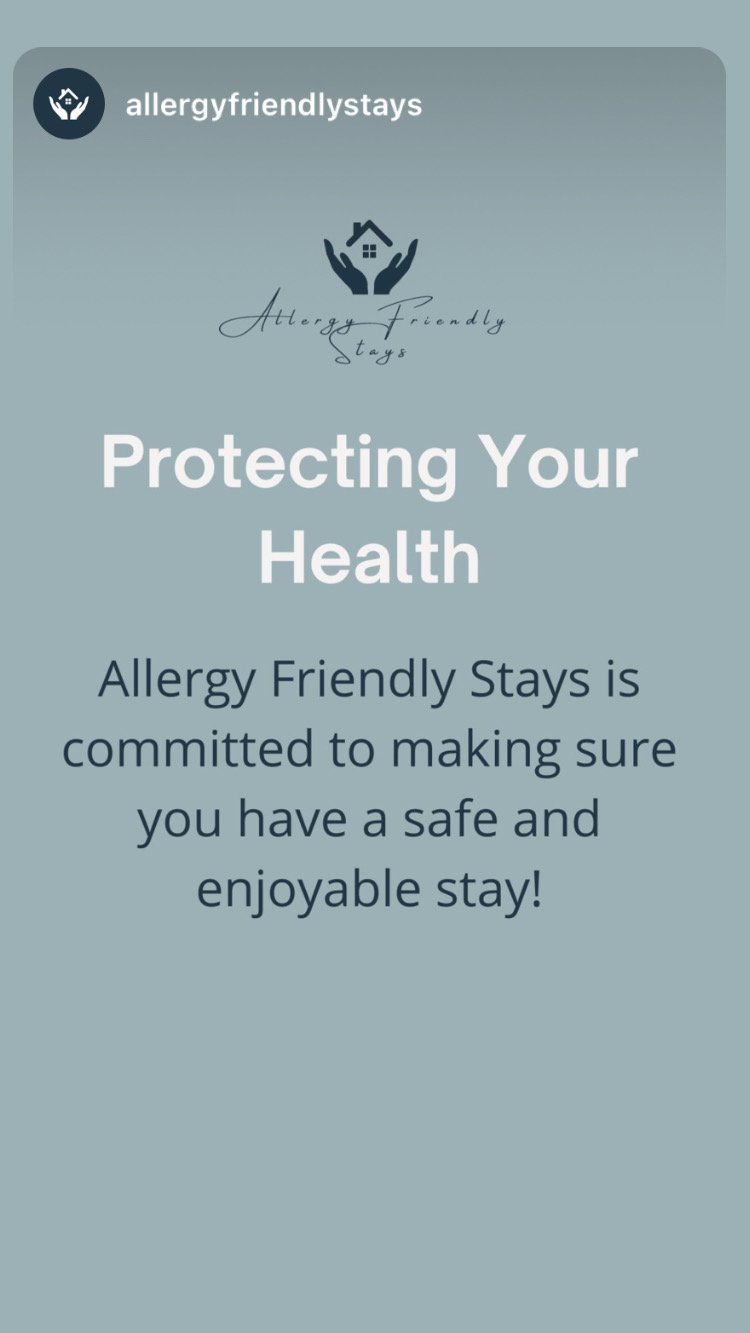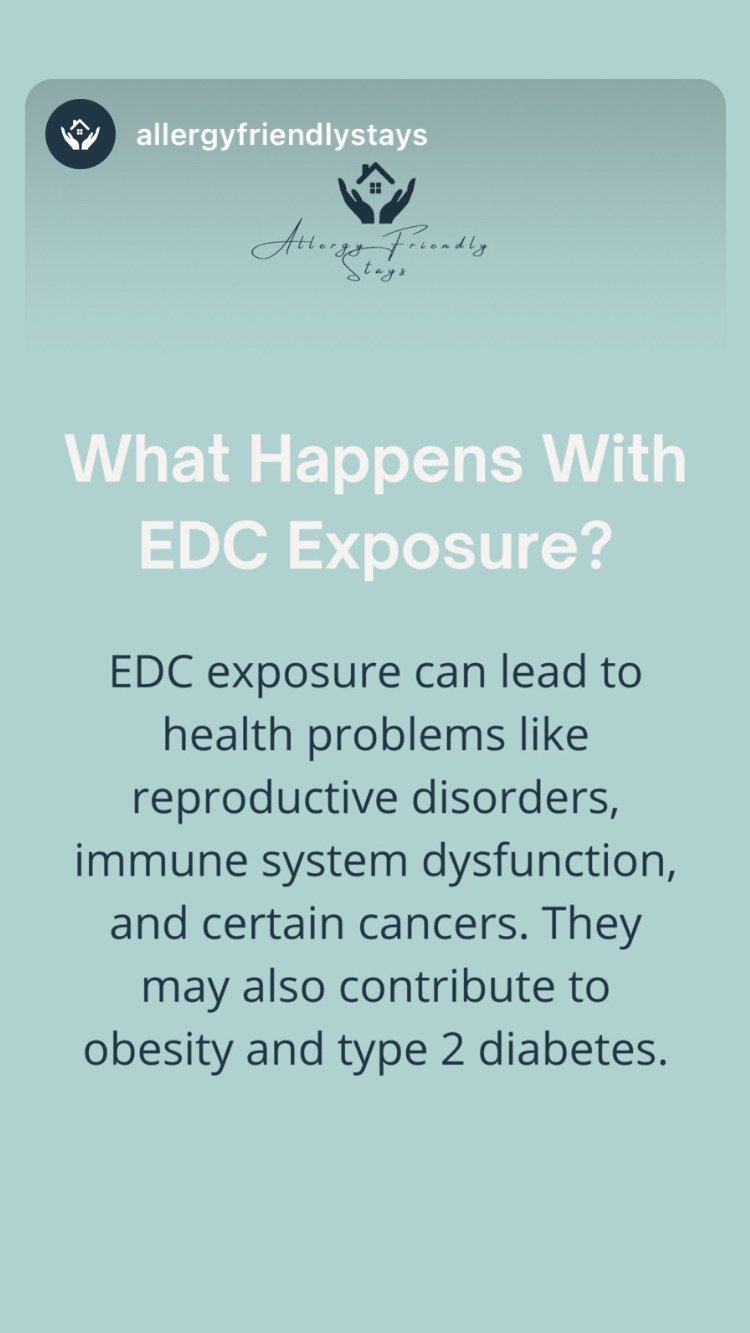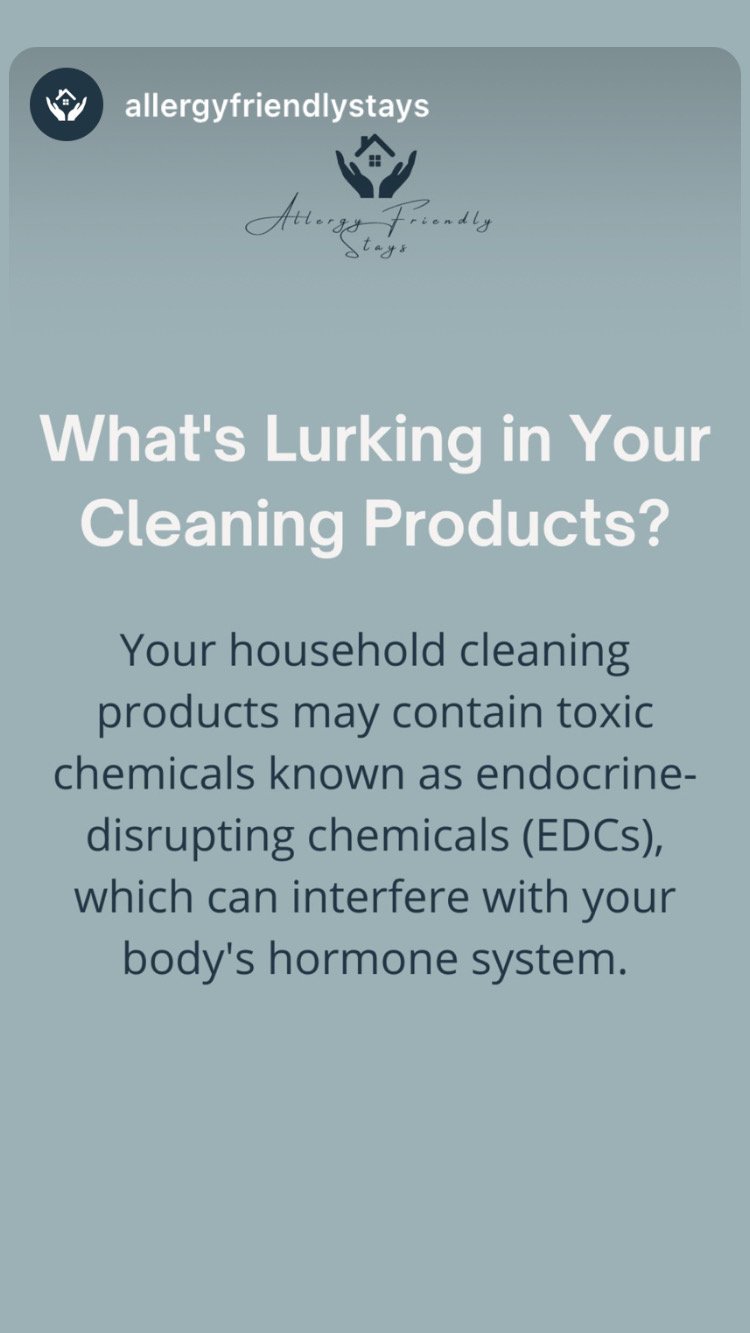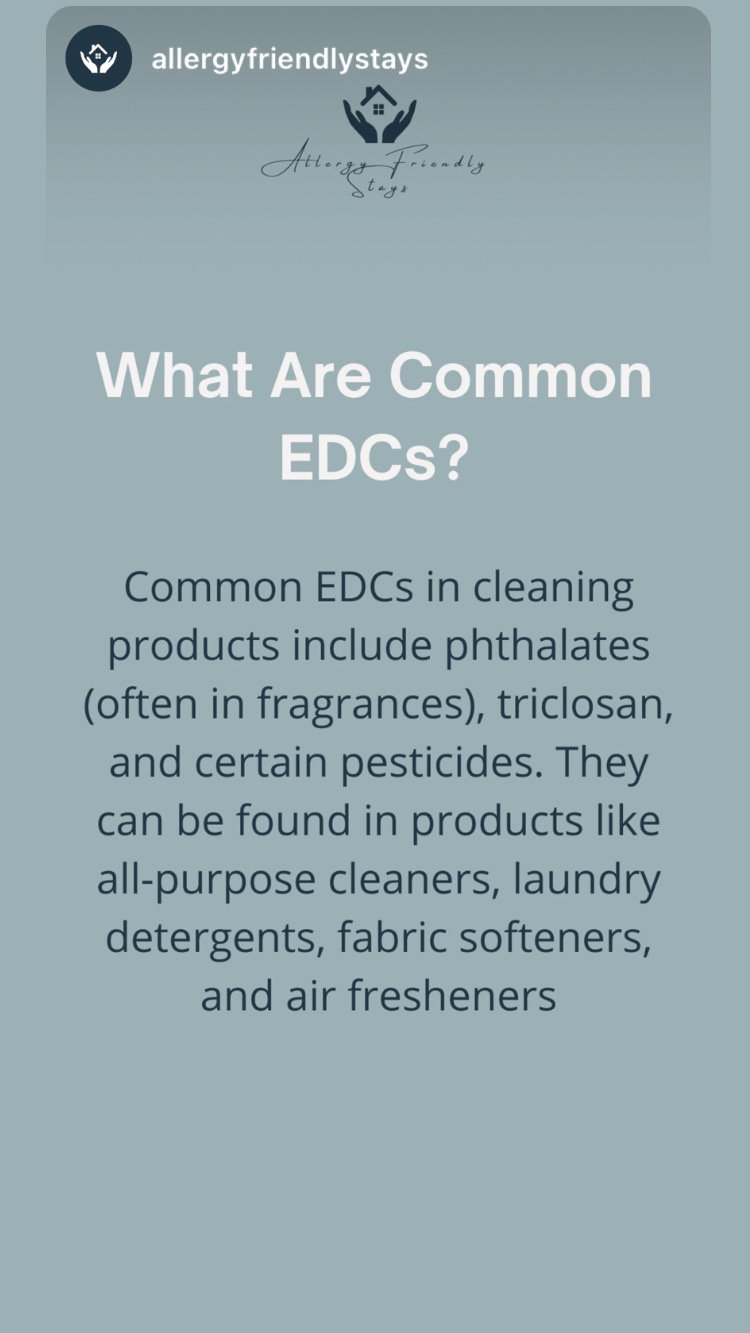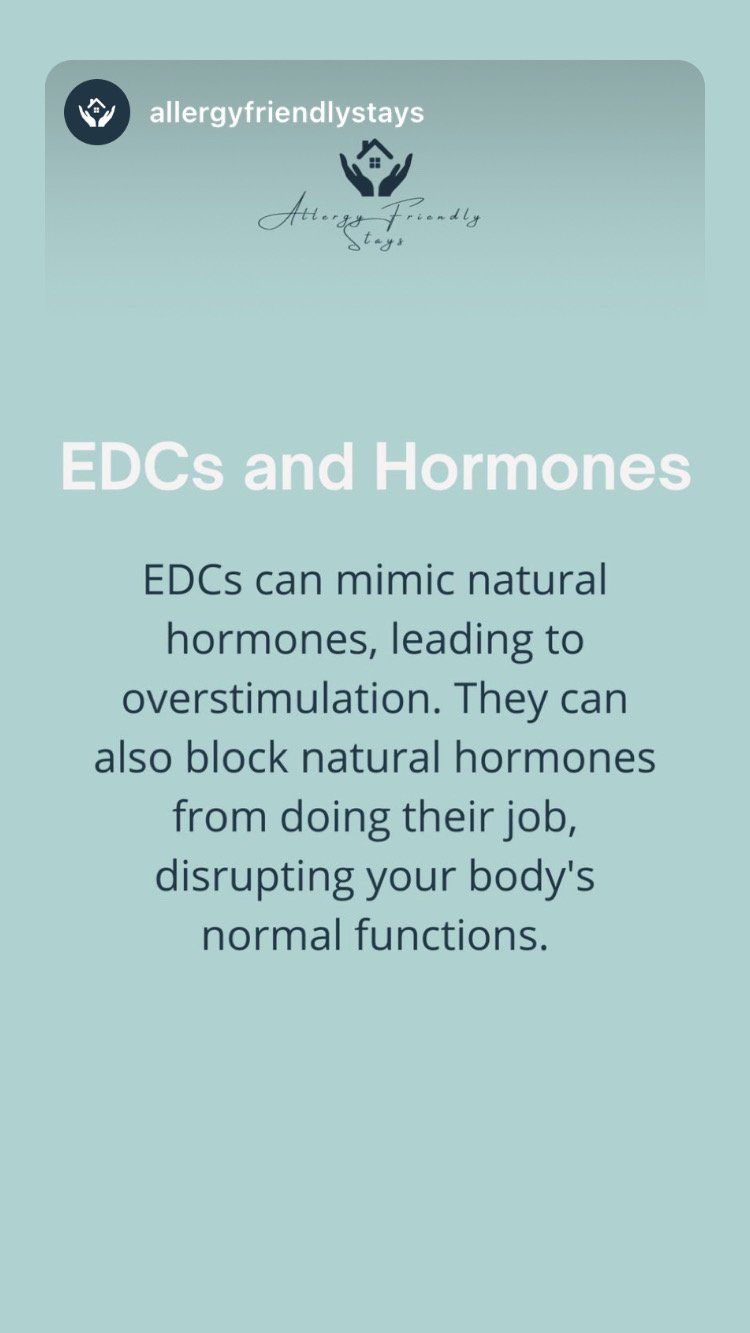Allergy Friendly Vacations are Better for Our Hormones
In our quest for cleanliness and hygiene, we often turn to an array of household cleaning products. But have you ever looked at the back of the bottle and tried to understand the ingredients, let alone pronounce them out loud?
Well, today we are going to explore a group of substances called Endocrine-Disrupting Chemicals (EDCs) that are found in various cleaning - and body - products that can silently wreak havoc on our health, particularly on our endocrine system. Let’s shed some light on the presence of EDCs in cleaning products and explore their profound impact on our well-being.
Understanding EDCs and the Endocrine System
Endocrine-Disrupting Chemicals are synthetic compounds that interfere with the body's endocrine system, responsible for regulating essential functions like growth, metabolism, reproduction, and development. EDCs mimic or block the actions of natural hormones, leading to hormonal imbalances that can have far-reaching consequences.
Cleaning Products: An Unexpected Source of EDCs
When we think about EDCs, our minds often go to plastic products, pesticides, or certain industrial chemicals. However, the cleaning products that line our shelves at home- and the body product in our bathrooms - can also harbor these harmful compounds. The everyday products we use to scrub our bathrooms, disinfect our kitchen counters, and wash our clothes and our bodies may contain EDCs as active ingredients, preservatives, or contaminants.
Common EDCs in Cleaning Products
Phthalates: These compounds are commonly found in fragranced products like air fresheners, laundry detergents, and cleaning sprays. They help to stabilize the scent but are linked to hormone disruption, reproductive issues, and even asthma.
Bisphenols: Often found in some dish soaps and cleaning agents, bisphenols can mimic estrogen and interfere with the proper functioning of the endocrine system. They have been associated with adverse effects on fertility, brain development, and metabolic health.
Triclosan: This antimicrobial agent is commonly used in disinfectants, hand soaps, and cleaning wipes. Triclosan has been found to disrupt thyroid function and contribute to antibiotic resistance.
Perfluoroalkyl Substances (PFAS): These are used in stain-resistant and water-repellent products. Their widespread use in cleaning products has raised concerns about potential health risks, including disruption of hormonal signaling.
Impact on Human Health
The presence of EDCs in cleaning products exposes us to a myriad of health risks, including:
Hormonal Imbalances: EDCs can lead to irregularities in hormone production, leading to reproductive problems, early puberty, and infertility.
Neurological Effects: Studies suggest that EDC exposure may be linked to cognitive and behavioral issues, especially in children.
Metabolic Disorders: EDCs can contribute to weight gain, insulin resistance, and diabetes.
Cancer: There is growing evidence linking EDC exposure to certain cancers, such as breast, prostate, and thyroid cancer.
Protecting Ourselves and the Environment
Fortunately, there are steps we can take to minimize our exposure to EDCs in cleaning products and protect our health:
Read Labels: Pay close attention to product labels and avoid those containing phthalates, triclosan, and other suspected EDCs.
Choose Natural Alternatives: Opt for eco-friendly, plant-based cleaning products that are free from synthetic chemicals. But be sure to CHECK THOSE labels. Many manufacturers are keen to how a little label as “organic” or “natural” can boost their sales, while not being truly organic, and still have these harmful EDCs in them.
DIY Cleaning Solutions: Create your cleaning solutions using simple and safe ingredients like vinegar, hydrogen peroxide, baking soda, and essential oils. These ingredients are relatively inexpensive compared to most store bought cleaners - and are just as effective if not more at disinfecting and cleaning. H202 will make things SHINE just as good if not better than windex.
Proper Ventilation: Ensure proper ventilation when using cleaning products to reduce indoor air pollution. This includes natural products as they can be quiet strong. Be sure to follow directions on how to properly dilute vinegar and H202.
Advocate for Change: Support and encourage companies to develop safer cleaning products without harmful chemicals, and advocate for stricter regulations on EDCs.
In light of all this, going with an Allergy Friendly vacation hotel or rental is truly better for our hormones. By taking steps to minimize exposure and advocating for safer alternatives- including the places we stay when we travel - we can protect our endocrine system, our health, and the environment. Awareness is the first step towards a safer, cleaner, and healthier future for ourselves and generations to come.

